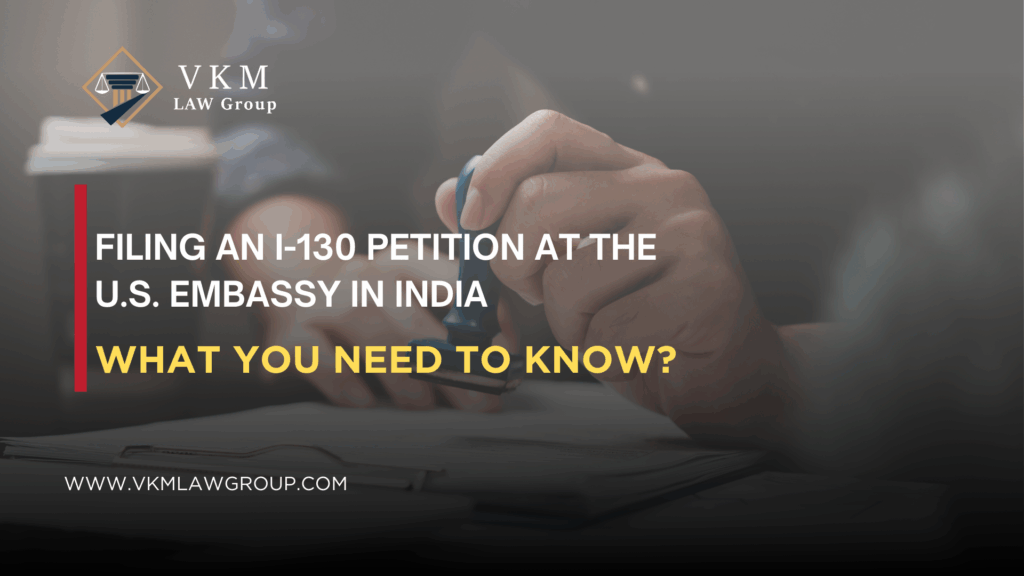
When a U.S. citizen wants to sponsor a close family member for a green card, the typical route is filing Form I-130 (Petition for Alien Relative) with U.S. Citizenship and Immigration Services (USCIS). But in certain urgent and exceptional circumstances, it may be possible to file the petition directly at a U.S. Embassy or Consulate abroad — including in India.
This path can sometimes save valuable time, but it’s important to know who qualifies, what counts as exceptional, and how the process works.
Who Can File at the Embassy?
This option is available only to U.S. citizens (not permanent residents). And it applies only when sponsoring immediate relatives, which include:
- A spouse
- A parent
- A child under 21
What Counts as Exceptional Circumstances?
Each U.S. Embassy or Consulate has the discretion to decide if your case qualifies. Some common scenarios include:
- Employment Relocation on Short Notice – You’re working in India and receive a sudden job transfer back to the U.S., requiring your family to move quickly.
- Aging Out of a Child – If your child is about to turn 21, embassy filing may help protect their eligibility.
- Medical Emergencies – When urgent treatment in the U.S. is required for either the U.S. citizen petitioner or the family member.
- Threats to Safety – Natural disasters, civil unrest, or other risks that make it unsafe to remain abroad.
- Recent U.S. Naturalization – When you’ve just become a U.S. citizen and now need to sponsor family members who were previously ineligible.
How the Process Works in India
If you’re in India and want to pursue this option, here’s the process at the U.S. Consulate in Mumbai:
- Request Permission – The U.S. citizen must ask the consulate for approval to file locally.
- Case Review – The embassy determines if the situation meets the “exceptional circumstances” threshold.
- Filing – If approved, the U.S. citizen submits the I-130 with supporting documents, originals, filing fees, and forms at the appointment.
- Decision – If denied, there is no appeal. You’ll need to proceed with USCIS in the United States.
Important Limitations to Keep in Mind
- This process is not for convenience or faster filing. It’s for emergencies only.
- If you already have an I-130 pending with USCIS, you cannot re-file at the embassy unless there is a legitimate emergency.
- Approval is not guaranteed — it is entirely at the discretion of the embassy.
Key Takeaway
Filing an I-130 directly at a U.S. Embassy in India can provide a lifeline for families in urgent, time-sensitive situations. But for most people, the standard USCIS process will still apply.
At VKM Immigration Law, we guide families and individuals through both standard and emergency filings. Whether you’re in New Jersey, across the U.S., or abroad, our team helps you:
✅ Understand your options
✅ Prepare strong applications
✅ Respond quickly in urgent cases
If you’re considering filing an I-130 from India — or need help deciding whether your case may qualify — our attorneys are here to support you.
📞 Contact VKM Immigration Law today to schedule a consultation and explore your best options for family sponsorship.